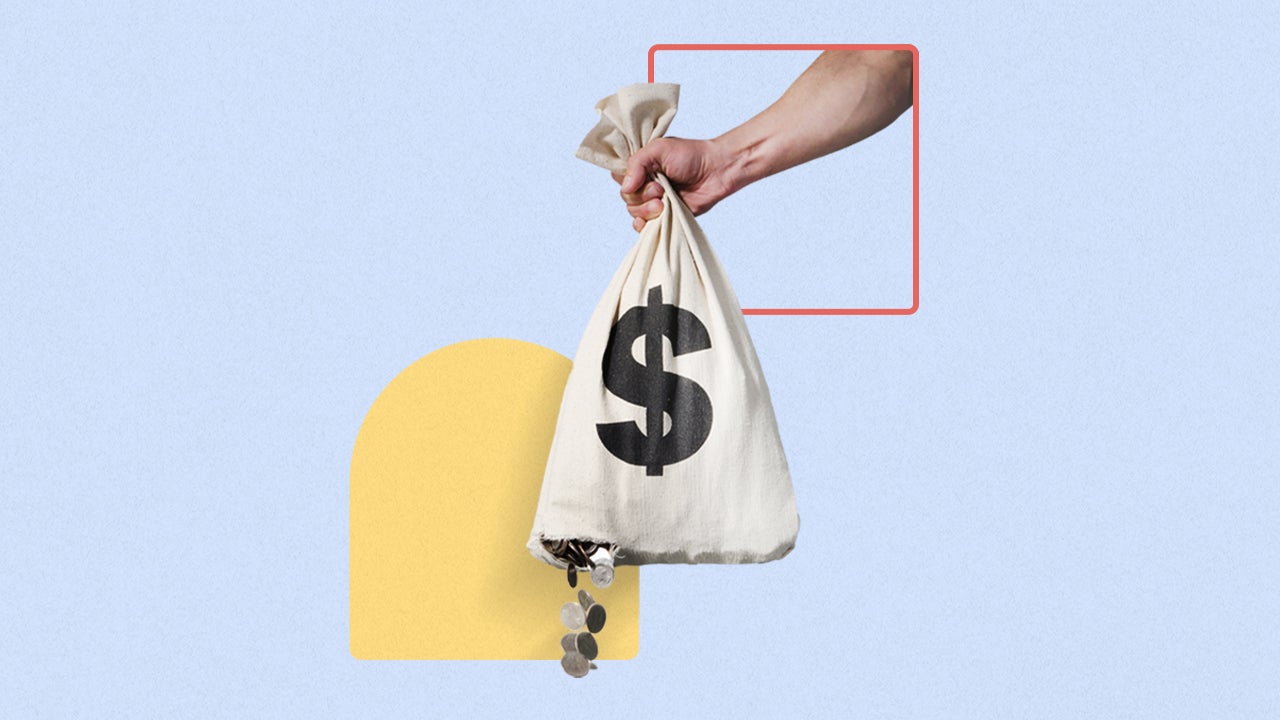Best low-interest business loans for bad credit

The average interest rates for small business loans for bad credit can climb as high as 99 percent — or higher. Having fair-to-bad credit (a FICO score of 669 or less) can make it more challenging to find business loans with competitive interest rates, but it’s not impossible.
Fortunately, bad credit business owners do have choices for business loans. Options like getting a loan backed by the Small Business Administration (SBA) or microloans for bad credit can help you lock in a lower rate. Start by comparing the options for low-interest small business loans and the lender’s requirements.
Compare best low-interest small business loans for bad credit
If you need a bad credit business loan, we recommend looking into these six options first:
|
Loan option |
Best for |
Bankrate Score |
|
SBA 7(a) loans |
Businesses with fair credit |
4.8 |
|
SBA microloans |
Underserved communities |
4.8 |
|
Accion Opportunity Fund |
Low-interest term loans |
4.1 |
|
Fundible |
Business line of credit |
4.7 |
|
Kiva |
No-interest term loans |
4.2 |
|
Creditfy |
Equipment loans |
4.7 |
SBA 7(a) loans: Best for businesses with fair credit
Interest rates: Maximum of 15 percent for variable loans, maximum of 15.5 percent for fixed-rate loans
SBA loans are a great place to start if you’re hunting for low-interest business loans for fair credit borrowers. The 7(a) loan program is the SBA’s primary way of backing small business loans. With a maximum loan amount of $5 million, this can be a game-changer for many small businesses.
The SBA doesn’t operate as the lender. Instead, this government agency backs the loan. This lowers risk for the lender, making them more willing to offer small business loans for fair credit business owners.
Finding an SBA loan for fair or bad credit may take some time because many SBA lenders have tough eligibility requirements. Some lenders like Lendio are willing to work with business owners with fair credit. For SBA loans, Lendio has a credit score requirement of 650 and requires at least two years in business.
How to qualify for an SBA 7(a) loan
To be eligible for an SBA 7(a) loan, you need to be a small, for-profit business operating in the U.S. You can’t have any outstanding government loans, and your business needs to be in good financial standing. The SBA usually wants this proven with at least two years in operation, which means 7(a) loans generally aren’t the right small business loans for startups
Beyond that, a lot of the qualification criteria comes down to the lender’s specific requirements. To get paired with an SBA 7(a) lender and learn their eligibility criteria, you can use the SBA’s Lender Match tool.
SBA microloans: Best for underserved communities
Interest rates: Typically 8 percent to 13 percent
Standard 7(a) loans backed by the SBA have wide-ranging borrowing amounts. While there’s no set minimum published for the standard 7(a) SBA-backed loans, the minimum offered may be too much for your business needs. Fortunately, this doesn’t mean you have to miss out on the SBA backing and the low interest rates that come with it.
The SBA also guarantees microloans, which cap out at $50,000 and have an average loan amount of about $13,000. Repayment terms max out at seven years.
These loans are issued by SBA-designated nonprofit, community-based organizations. As a result, they’re a great fit for minority business owners and folks operating businesses in underserved communities. Many microlenders have relaxed eligibility requirements and offer low-interest microloans for bad credit or no credit history.
How to qualify for an SBA microloan
The SBA lets the organization funding the loan set the eligibility criteria, so you’ll need to find a designated intermediary to work with. That lender will let you know about their qualification requirements and the process to apply for an SBA microloan. You can find the full list of SBA-authorized microlenders here.
In general, microlenders may accept bad credit scores as low as 500 and businesses in the startup phases, though some require a longer time in business.
Accion Opportunity Fund: Best for low-interest term loans
Interest rates: 8.49 percent to 28.99 percent
Accion Opportunity Fund works to increase equity in financing. This nonprofit says that more than 90 percent of its clients are diverse business owners (women, people of color and business owners operating in communities with low-to-moderate income).
Accion Opportunity Fund offers small business loans in amounts from $5,000 to $250,000 with repayment terms from 12 to 60 months. This lender accepts businesses with one year in business and a minimum of $50,000 in annual revenue, far less than most lenders require. The company says it looks at more than just your credit score when deciding whether or not to fund your loan, so it’s an option for low credit business loans.
How to qualify for an Accion Opportunity Fund small business loan
You can apply for an Accion Opportunity Fund loan online. Have key financial documents like your past tax returns and statements from your business checking account handy so you can pull details from them.
After you apply, Accion Opportunity Fund presents you with any options for which you’re eligible. From there, you can choose the best one for your company.
Fundible: Best for business line of credit
Interest rates: Starting 0.75 percent monthly rate
Fundible specializes in bad credit business loans. It offers several types of small business loans, including a business line of credit with loan amounts of up to $250,000 and simple interest rates starting at 6.00 percent.
Fundible works with business owners with credit scores of 450, according to a spokesperson. Few other lenders will go that low when it comes to any kind of small business loan for bad credit.
How to qualify for a Fundible business line of credit
Be ready to show three months of business bank account statements proving your average monthly revenue. Beyond that, you can complete the application process online, which should only take a few minutes.
Bonus: If you’re approved, you can receive your funds in as little as the same day.
Kiva: Best for no-interest term loans
Interest rates: 0 percent
Kiva isn’t your traditional lender for a bad credit business loan. It’s an unbeatable option if you’re looking for a low-interest business loan for bad credit though. The money you get through Kiva comes with a 0-percent interest rate.
This money doesn’t come to you from a traditional lender. Instead, you use the Kiva platform to crowdfund it, which likely means asking friends and family to pitch in.
The amount of money you can raise through Kiva maxes out at $15,000, and you’ll need to pay it back within 36 months. However, a Kiva loan comes with serious perks to make up for those limitations. This is a business loan with no annual revenue requirement, and there’s no minimum time-in-business requirement, either. As a result, crowdfunded Kiva money could be your solution if you’re hunting for startup business loans. With Kiva’s no minimum credit score requirement, it ticks the box for low-interest business loans for bad credit.
How to qualify for a crowdfunded Kiva loan
Again, there’s no credit score, time-in-business or annual revenue requirement here. Instead, you just need to get enough initial buy-in for Kiva to take your loan public. After you fill out the initial application and get your loan set up on Kiva’s site, you have 15 days to receive funding from your circle of family and friends.
Essentially, Kiva uses contributions from your network (like friends and family) to validate your creditworthiness.
Creditfy: Best for equipment loans
Interest rates: 4.90 percent to 34.00 percent simple interest
There’s a reason Creditfy made our list of best equipment loan lenders. It offers low-interest business loans for bad credit borrowers that you can use to finance 100 percent of your equipment purchase. In other words, you don’t need to come up with anything out-of-pocket for a down payment.
Creditfy says it approves 90 percent of its equipment loan applicants. If you have a minimum credit score of 500 and a minimum time-in-business of six months, this could be a good option for small business loans for bad credit startups.
How to qualify for a Creditfy equipment loan
You can apply for Creditfy equipment financing online, and the company says the process should only take about 5 minutes. After you submit your application, you should hear from a loan advisor within a few hours. The loan advisor will go over any options for which you qualify.
Alternatives to low-interest business loans for bad credit
While there are clearly several low-interest business loans for bad credit borrowers, getting a loan isn’t your only option. You could also look into:
Business credit cards
The best small business credit cards are usually reserved for business owners with good or excellent credit. You can find a few unsecured business credit cards for business owners with fair credit, including the Capital One Spark 1% Classic. These won’t feature the best perks found with other business credit cards and typically have higher rates.
If you can’t qualify for a low-interest business loan with better rates, these cards are a solid pick to help you cover your short-term costs. Unlike business loans, paying your balance in full each month can help you avoid interest charges. This not only can save you money, but it’s also a low-cost way to build business credit.
Business grants
A small business grant is basically free money: you get cash in hand but don’t have to pay it back. The trick is qualifying for the grant itself since grants tend to be competitive among business owners.
You can narrow down the competition by applying for grants designed for your industry, business or your specific demographic. For example, you can apply for grants geared toward minority business owners.
Personal loans
You don’t necessarily need to go through your business to improve your company’s cash flow. Most personal loans can be used any way you want, including investing them in your business. You will want to check the fine print to ensure that you can use personal loans for business purposes. Plus, some personal loan lenders like Upstart have extremely low eligibility requirements, such as a minimum credit score of 300.
How to choose a low-interest business loan for bad credit
As you’re evaluating your options for low credit business loans, keeping some guidance in mind can be helpful. To find the right option for your company, take these steps:
- Double-check the lenders’ requirements. A lot of online lenders will tell you what makes you eligible for their financing right on their website. If you’re not sure, though, you can always call and ask. Also, if you don’t know your credit score, check it first to compare it against lender minimums.
- Compare interest rates and other loan costs. Make sure you’re comparing apples to apples here. For example, some loans may come with factor rates. Ideally, you want to convert these to an annual percentage rate (APR) to compare similar costs. You’ll also want to check additional fees like an origination fee to make sure that you understand the full cost of each loan.
- Confirm the loan amount. Make sure the lender offers you a loan that will cover your funding needs. You’ll also want to make sure the minimum loan amount offered by the lender isn’t too high to suit your small business.
- Make sure the repayment timeline works for you. Some loans have a short repayment timeline (like 12 months), while others — like SBA 7(a) loans — give you a decade or longer to pay back what you borrow. More time means lower payments, but it also means paying more in interest over the life of your loan. Consider whether the loan payment fits within your business budget and that you’re saving the most amount of money possible.
The bottom line
Various low-interest business loans are available for business owners with bad credit, such as SBA microloans or crowdfunding through Kiva. Plus, several lenders work to provide low-cost options. No matter which loan or lender you choose, make sure you understand the full cost of the loan and how repaying it will fit into your overall business plan.
Frequently asked questions
Why we ask for feedback Your feedback helps us improve our content and services. It takes less than a minute to complete.
Your responses are anonymous and will only be used for improving our website.
You may also like

Can you get a small business loan after bankruptcy?

How to get a personal loan with bad credit


Where to get a bad credit business loan


